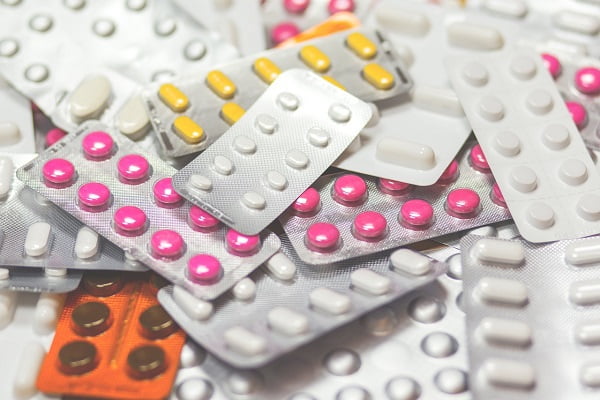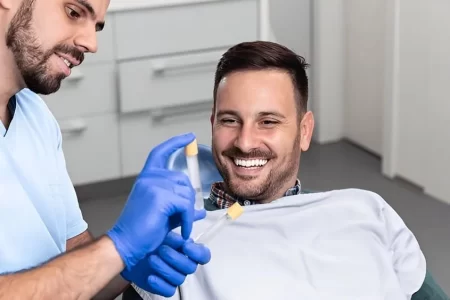Drugs that Cause Erectile Dysfunction
- Updated on: Jul 9, 2024
- 5 min Read
- Published on Oct 10, 2018

What is erectile dysfunction?
A recent study states that about 30 million men in the United States are suffering from erectile dysfunction (ED). It affects men of any age group and is not specific to any particular race. But most cases are observed in men who are above 70 years.
Erectile dysfunction is not considered as an age-related issue, but it results due to several physical and psychological causes, such as high-blood pressure, anxiety, diabetes and depression. Certain lifestyle factors, such as smoking, excessive consumption of illicit drugs and alcohol, can also lead to erectile dysfunction.
Common medications that cause erectile dysfunction
Researchers have found another cause of erectile dysfunction, which is, prescriptive medication. A report by Harvard Special Health titled as Erectile Dysfunction: How medication, lifestyle changes, and other therapies can help you conquer this vexing problem, states that about 25% of erectile dysfunction cases are a result of certain drugs.
Certain medications which are beneficial for a particular disease or disorder can hamper hormonal levels, blood circulation or nerve impulsion in your body. They have several side effects associated with their long-term use. These drugs may either lead to erectile dysfunction or increase its risk through many-folds.
The most common class of drugs which lead to erectile dysfunction includes antidepressants, anti-ulcer drugs, tranquilizers, and diuretics. Those drugs which remove excess sodium and water from the body or which are used for the treatment of liver failure or certain kidney disorders are also associated with a risk of erectile dysfunction.
Following are the commonly prescribed drugs that cause erectile dysfunction:
Beta-blockers
High blood pressure (hypertension) medication induces the highest risk of erectile dysfunction in males. A study also reported that erectile dysfunction patients have 38% higher chances of having high-blood pressure, than non-ED patients.
Beta-blockers are specific blood pressure medications. Doctors have found that these drugs lead to erectile dysfunction till the time the patient consumes them. Once they stop their use, their side-effects are also reduced.
Beta-blockers are highly essential for heart patients. It is therefore important to get rid of such side effects. Doctors have replaced beta-blockers with other types of blood-pressure medications such as angiotensin receptor blockers or ACE inhibitors. These drugs do not cause impotence.
Another class of drugs used for treating high blood pressure known as thiazides can also lead to impotence. Alpha blockers are also used by heart patients, but these medicines have significantly lower risk of developing erectile dysfunction.
Read more about Hypertension Treatment
Some commonly prescribed beta-blockers that cause erectile dysfunction are as follows:
- Hydrochlorothiazide (Esidrix, Inderide, Oretic, Lotensin)
- Chlorthalidone (Hygroton)
- Triamterene (Maxide, Dyazide)
- Furosemide (Lasix)
- Bumetanide (Bumex)
- Guanfacine (Tenex)
- Methyldopa (Aldomet)
- Clonidine (Catapres)
- Verapamil (Calan, Isoptin, Verelan)
- Nifedipine (Adalat, Procardia)
- Hydralazine (Apresoline)
- Captopril (Capoten)
- Enalapril (Vasotec)
- Metoprolol (Lopressor)
- Propranolol (Inderal)
- Labetalol (Normodyne)
- Atenolol (Tenormin)
- Phenoxybenzamine (Dibenzyline)
- Spironolactone (Aldactone)
Androgen Blockers
Androgen blockers are medications which are used for treating prostate cancer. One of the common side effects of this class of drug is erectile dysfunction and decreased libido. They cause erectile dysfunction only if consumed for a longer duration.
Patients who are suffering from priapism, a recurrent long-lasting erection problem, are also prescribed with androgen blockers. Doctors can prescribe them with an alternative medication to get rid of the side-effects and also decrease the chances of developing erectile dysfunction.
Some common anti-androgen classes of drugs which lead to erectile dysfunction include casodex, flutamide and nilutamide.
Read more about how a prostate cancer is treated?
Finasteride (brand name- propecia and proscar), is a drug molecule which is prescribed for treatment of hair loss in men. This drug is found to decrease dihydrotestosterone levels and libido in about 10% of the patients taking these drugs. It produces severe effects in younger male patients. It belongs to a specific class of drug known as 5 alpha-reductase inhibitors. Doctors have now stopped recommending such medications for hair loss treatment in males.
Sedatives and Anxiolytics
Drugs which depress action of your nerves or used to treat insomnia can lead to erectile dysfunction. These sedative and anxiolytics produce a reversible effect by directly suppressing the nerve signaling mechanism or due to changes in your hormonal signaling. Researchers have found that narcotic drugs can lead to decrease in testosterone levels in your body, which indeed can modify the blood flow to your penis.
Read more about treatment of Insomnia.
Antidepressants
Antidepressants are the major class of drugs which induces nerve stimulation activity and are used for treating depression. Large numbers of evidences indicate the occurrence of erectile dysfunction in patients taking antidepressants. The mechanism of action of each antidepressant depends upon the specific drug and its activity.
Dr. Landon Trost, head of andrology and male infertility at the Mayo Clinic in Rochester, Minn believes that dopamine and serotonin are the major hormones which regulate the process of erection during sexual act. If any antidepressant molecule modifies their levels in your body, then the patient’s erection ability is affected.
Wellbutrin (buproprion) and Remeron (mirtazipine) are those antidepressant molecules which have the least effect on the erection ability of a person; thereby they reduce the risk of impotence in an individual.
Higher consumption of antidepressants or its continuous dose will gradually change the hormonal levels in the body, thereby impacting your sexual function greatly.
Some common antidepressants or anti-anxiety medications that cause erectile dysfunction are as follows:
- Fluoxetine (Prozac)
- Tranylcypromine (Parnate)
- Sertraline (Zoloft)
- Isocarboxazid (Marplan)
- Amitriptyline (Elavil)
- Amoxipine (Asendin)
- Clomipramine (Anafranil)
- Desipramine (Norpramin)
- Nortriptyline (Pamelor)
- Phenelzine (Nardil)
- Buspirone (Buspar)
- Chlordiazepoxide (Librium)
- Clorazepate (Tranxene)
- Diazepam (Valium)
- Doxepin (Sinequan)
- Imipramine (Tofranil)
- Lorazepam (Ativan)
- Oxazepam (Serax)
- Phenytoin (Dilantin)
Other drugs leading to erectile dysfunction
There are some other classes of drugs which also increase the risk for developing erectile dysfunction in males. These drugs have shown lower evidences than antidepressants and high blood pressure medication for developing impotence. These are listed here.
| Class of Drugs | Examples Generic (Brand names) |
|---|---|
| Antihistamines | Dimehydrinate (Dramamine) Diphenhydramine (Benadryl) Hydroxyzine (Vistaril) Meclizine (Antivert) Promethazine (Phenergan) |
| Non-steroidal anti-inflammatory drugs (NSAIDs) | Naproxen (Anaprox, Naprelan, Naprosyn) Indomethacin (Indocin) |
| Parkinson’s disease medications | Biperiden (Akineton) Benztropine (Cogentin) Trihexyphenidyl (Artane) Procyclidine (Kemadrin) Bromocriptine (Parlodel) Levodopa (Sinemet) |
| Histamine H2-receptor antagonists | Cimetidine (Tagamet) Nizatidine (Axid) Ranitidine (Zantac) |
| Muscle relaxants | Cyclobenzaprine (Flexeril) Orphenadrine (Norflex) |
| Chemotherapy drugs | Busulfan (Myleran) Cyclophosphamide (Cytoxan) |
| Prostate cancer medications | Flutamide (Eulexin) Leuprolide (Lupron) |
| Antiarrythmics | Disopyramide (Norpace) |
| Hormonal medicines | Luteinising Hormone Releasing Hormone (LHRH) agonists – Lupron, Zoladex |
| Opiate analgesics (painkillers) | Codeine Fentanyl (Innovar) Hydromorphone (Dilaudid) Meperidine (Demerol) Methadone Morphine Oxycodone (Oxycontin, Percodan) |
After consuming these drugs, if you experience symptoms of erectile dysfunction, do consult your doctor on a priority basis. Do not stop or change your medication or take certain medications for erectile dysfunction. Your doctor is the best person to decide the most suitable option depending upon your case.
The risk of erectile dysfunction can be reduced by decreasing the dosage of risk-associated drugs, by consulting your doctor for an alternative drug or you can include some healthy lifestyle choices to reduce the requirement of that drug.
In some cases, such as for blood pressure and antidepressant drugs, your doctor can prescribe an alternative medication, if the prescribed drugs lead to erectile dysfunction. You should never change or stop taking your medication without your doctor’s recommendation, as it can increase the risk for unknown complications.
People tend to consume certain drugs for recreational purposes, which can indeed increase the tendency of developing erectile dysfunction in people. These drugs include amphetamines, barbiturates, cocaine, marijuana, methadone, nicotine and opiates.












